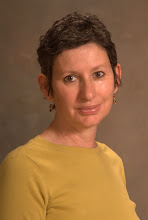Fourteen days have passed since my final round of chemo. For the first time in 11 weeks, I feel that I'm at a point where I can begin to rejuvenate from the treatments.
While my energy level is far from normal, I'm also not as fatigued as I have been. That said, at the end of April, I'm scheduled to begin radiation, which also imparts a cumulative weariness in patients. Knock you down, let you build back up, and knock you down again. Add to the fatigue level varying amounts of hair loss, nausea and low blood counts. Indeed, the cancer treatment cycle is vicious, but so are those nasty cancer cells. Doctors are only trying to match the correct level of firepower to the perceived level of threat. The side effects are so much collateral damage.
Thanks to the sacrifices of a group of laboratory mice, however, some of chemo's negative impacts may be a thing of the past. A joint study, conducted by USC/Norris and the Giannina Gaslini Institute in Genoa, recently showed that by starving mice for a few days before their chemo treatments, the rodents avoided some of chemo's debilitating side effects. The researchers believe that healthy cells, when deprived of nourishment, stop dividing in order to withstand the stress. Cancer cells, however, respond differently and continue to divide, even when they are not getting proper sustenance. Since chemo only attacks dividing cells, the researchers believe that patients may be able to ward off chemo's ill effects if they forego food for a few days before treatment.
In this particular experiment, 28 mice received only water for 48 to 60 hours preceding treatment. Only one mouse out of the 28 who fasted did not survive the experiment. Meanwhile, another group of 37 mice ate normally before their chemo treatments, yet 20 mice in this group perished. Interestingly, the survivors in the group who fasted showed no visible side effects, while the remaining mice in the group who ate became sluggish and had ruffled fur. All of the mice were given the drug Etoposide, at levels three times the maximum human dose.
The results appear promising, and a clinical trial is expected to begin later this year to test this theory further. Until more is known, however, Valter Longo of USC, the director of the study, warns chemo patients not to fast before their treatments without instruction from their doctors.
While Longo and the others behind this study will undoubtedly get all the praise, the mice are the true unsung heroes. Out of the 65 mice who began the experiment, 21 are no longer with us. Now that's a hazardous job, and it brings to mind all of the laboratory rodents who work to further our understanding in so many fields of study. If I had hair, I'd tip my hat to those furry little creatures. Instead, I'll raise my glass. Here's to lab rats and research mice everywhere. Your efforts go largely unnoticed, but your contributions are immeasurable.
4/8/08
Subscribe to:
Post Comments (Atom)





No comments:
Post a Comment